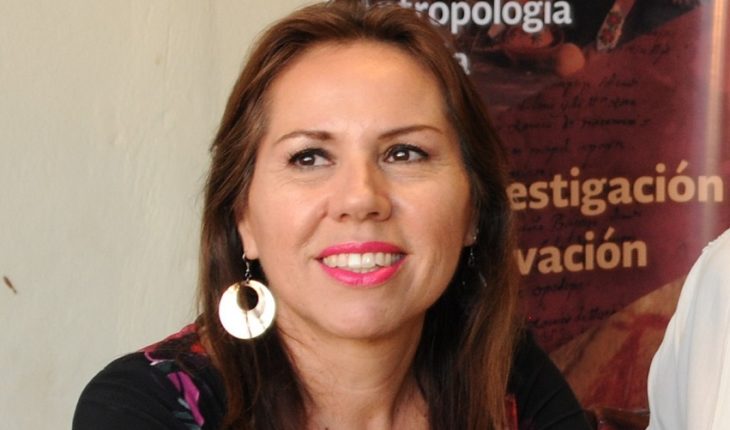On Thursday, November 7, around 4 p.m., Raquel Padilla was stabbed several times, allegedly by her romantic partner, Juan Armado “N”.
His death leaves sadness and anger. But also very afraid, in a state where only this week have been murdered, in different ways, five adult women (three from the LeBarón family, of which nine children were also murdered).
“There are many companions who could not even sleep. Many women are afraid, young above all. They say that if this happens to an empowered woman, so prepared, so recognized, because what they can do to the rest of us,” says Silvia Núñez, representative in Sonora of the National Citizen Observatory of Femicide (OCNF).
Raquel Padilla’s passion was the yaquis. He knew his way of life and organization, his history. But most of all, I knew their struggles. He had rescued from among books, documents and talks with them, the missions, the war, the extermination, the deportations they suffered.
Afterwards she shared it, her passion for doing so was such that it was almost hopeless not to enter the tribe world at her hand. It was many he led there, like his friend, the geographer Giovanni Velázquez.
“The same members of the tribe did not see her as a foreigner, as a yori, who would only go into her territory to gain knowledge to become a recognized academic. Rachel did her research for themselves, so they could know their history and use it to follow their struggles,” Velázquez says.
Just on the night of 21 October he was in Loma de Bácum, one of the eight Yaqui villages. He went to tell them about how the government and the Army took the tribe members, by 1899, to work on the tobacco farms of Valle Nacional, in Oaxaca, as labor, on one more of the abuses that this town has lived.
Rachel was hurt by these injustices. “The debt to the Yaqui people is immeasurable,” he used to say and left it written on his posts on Facebook or Twitter.
Another of her close friends, the Jesuit Conrado Zepeda, says that it was essential for her to demonstrate the injustices against her: how they were segregated, systematically killed, taken from Sonora to Yucatan to stop her struggle as indigenous peoples, and link that with the present.
I knew so much about them, that even the same members of the tribe sought her when they wanted to base on the history of their people some demand, some struggle.
“When we needed information, we always resorted to it, Raquel was happy to look for it and send it to us, by mail or by Whatsapp, and so we founded many of our actions,” recalls Anabela Carlón, a Yaqui lawyer.
Mutual love
Raquel Padilla was a research professor at the INAH Sonora Center. He was born in Hermosillo. He was 53. She was a PhD in Ethnology from the Faculty of Humanities of the University of Hamburg. He also studied the indigenous people May, but his infatuation was with the Yaquis.
As a teenager, Zepeda says, she was interested in indigenous cultures, in their way of life, in their struggles. Very in line with that, he also liked anthropology, so he went to study a degree in Yucatan.
There, says Giovanni Velázquez, he found the descendants of the Yaquis who displaced the peninsula (since 1802) to uproot them from their land and stop their struggles to defend the territory. There he encountered the trail of that injustice and began his infatuation with the tribe.
She didn’t just know them very well, she understood her world, she shared her idea that the land is not sold, and that development is not megaprojects or more companies or more money.
He understood that for the Yaquis it is worth more their territory, their people, their way of life and with them defended that position. “In all our recent struggles, there I was doing the defense, whether it was with documents, with activism, organizing, but always willing to support us,” Carlón says.
Raquel was in recent fights against projects such as the Independence Aqueduct and the IEnova pipeline.
Padilla also shared the festivities with the Yaquis. She was a very welcome woman and appreciated by the tribe. “I came to the communities a lot, to the big parties, I was a mothermother of quinceañeras, of baptisms. She was invited and she was always happy to be around,” she says.
The investigator’s romantic partner, allegedly responsible for the murder, was a member of the Yaqui tribe. Zepeda says he was surprised to be pointed out. “I had no news that he was violent or that Rachel was being assaulted.”
However, the representative in Sonora of the OCNF, Silvia Núñez, notes that they have been documenting the case and gathering testimonies from the neighbors. “We have information that Rachel had already ended up with this person, but just a couple of days ago they had resumed the relationship. This is something that is a pattern, there are many cases of femicide in which the aggressor feeling that he can lose the victim, the killer.”
Núñez recounts that the testimonies of the neighbors refer that Raquel Padilla arrived at one of the two houses he had in Sonora, in the community of El Sauz, in the municipality of Ures, accompanied by one of his sons. Apparently he didn’t intend to take any time, because he asked him to wait in the car. Inside the house was his romantic partner.
The boy heard a cry from his mother and entered the house. He found the guy stabbing Rachel. He hid in the bathroom and then managed to run to a neighbor’s house. While the alleged murderer apparently tries to kill himself, he is now in the hospital.”
The spokesperson for the Attorney General’s Office of the State of Sonora (FGJE) confirmed that the case is investigated as femicide and that the alleged perpetrator, the victim’s partner, is already in custody. “The evidence data is being processed and the interviews to the witness are being formalized, as the investigation progresses, it will be informed.”
Conrado Zepeda wrote last night on His Facebook: “Today I’m going to sleep with a hole in my heart. rest in peace, Raquela, I refuse to believe that violence, machismo, anti-democracy, hopelessness, death, ungovernability, heartbreak… have the last word.”
What we do in Animal Político requires professional journalists, teamwork, dialogue with readers and something very important: independence. You can help us keep going. Be part of the team.
Subscribe to Animal Politician, receive benefits and support free journalism.#YoSoyAnimal
translated from Spanish: the death that the Yaquis mourn
November 9, 2019 |





